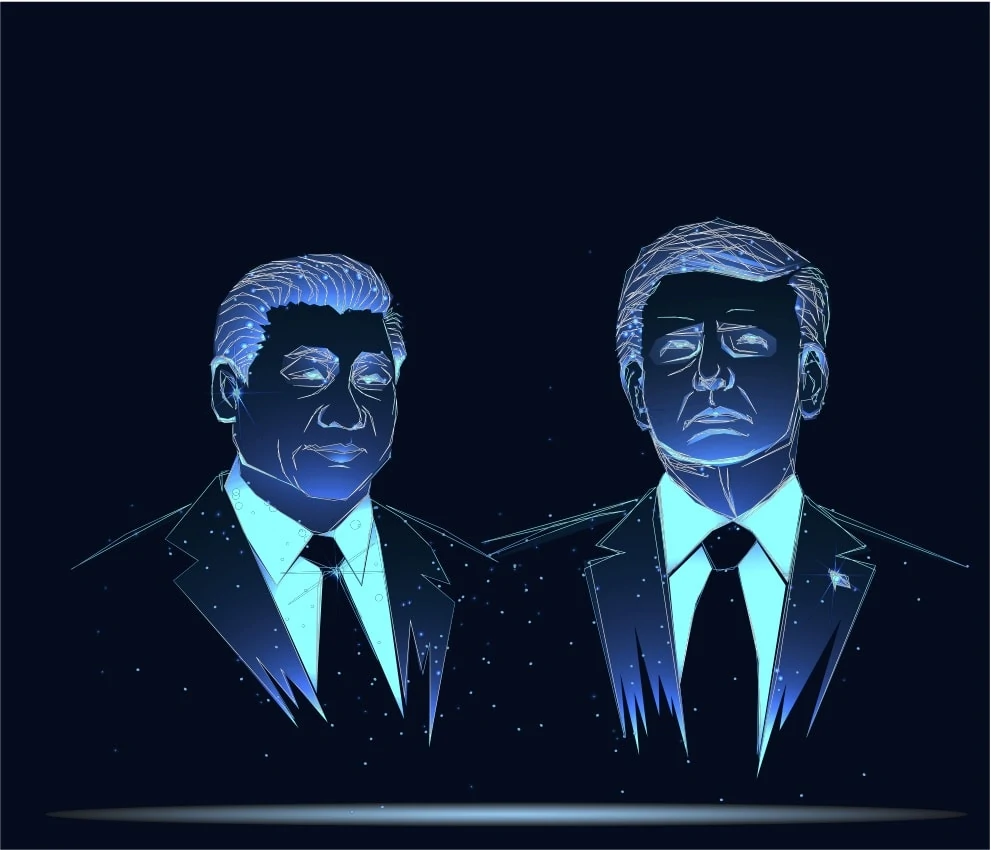The remarkable shift in global politics of recent years came to a head on Tuesday this week (22nd September) when Chinese President Xi Jinping and his U.S. counterpart Donald Trump both spoke in pre-recorded messages to the 75th session of the United Nations General Assembly.
Xi’s speech to a large extent echoed his famous speech at Davos in 2017. Once again, he sought to portray China as a leading proponent of globalisation and anti-protectionism – passing over growing international concern about the recent statist trajectory of the Chinese economy. In addition, the Chinese leader made some eye-catching climate change-related pledges, setting a target for China to be carbon-neutral by 2060.
Trump, meanwhile, used his time to present a now-familiar litany of grievances towards China, chief among them its response to Covid-19; and he warned countries that they should take care of their own interests first, once more eschewing the US’s traditional role as the world’s leading force for global cooperation.
The following newsletter summarises the main points of the leaders’ speeches, with links to both at the end.
Xi defends globalisation and promises more aid to developing countries
Fight against Covid-19
Xi began his speech by highlighting the colossal challenges posed by the recent Covid-19 pandemic. He called for a multilateral effort to strengthen the leading role of the World Health Organisation and for better coordination of macroeconomic policies to help countries reopen their economies.
Furthermore, he called for the international community to address pressing issues such as debt relief, and the implementation of the 2030 Agenda for Sustainable Development in developing countries.
Regarding the fight against Covid-19, Xi repeated China’s commitment to contribute US$2 billion (£1.6 billion) of international assistance over the next year and promised that any vaccine developed by China would be made available to all countries.
Fight against protectionism
Xi spoke in defence of globalisation, rejecting what he called zero-sum thinking and protectionist tendencies. In a thinly veiled criticism of the Trump administration, the Chinese leader said that “we should see each other as members of the same big family, pursue win-win cooperation, rise above ideological disputes, and not fall into the trap of ‘clash of civilisations’”.
Xi argued that globalisation is irreversible and that no country could thrive in isolation. He affirmed the central role of the World Trade Organisation and its multilateral trading regime. Yet Xi also acknowledged that the global governance system needs reform to deal with modern challenges such as Covid-19, and he promised to work with other nations to make the UN fit for the 21st century.
Fight against climate change
In the most headline-grabbing section of his address, Xi announced that China would step up its contribution to the global fight against climate change. Specifically, Xi said that China would aim to reverse its increase of CO2 emissions before 2030, and to achieve carbon neutrality before 2060.
Xi also confirmed the targets outlined in the Paris Climate Agreement and called for a ‘green revolution’ and ‘green economic recovery’ from the pandemic.
China promises more development aid
Xi ended by announcing several concrete measures to support UN efforts to help developing countries in the current situation, including a pledge to contribute an additional US$50 million (£39 million) to the UN Covid-19 Global Humanitarian Response Plan.
Trump praises himself and blames China for Covid-19
While Xi called for a multilateral effort to deal with the Covid-19 crisis, Donald Trump did the opposite.
Trump explicitly blamed China for the spread of Covid-19, which he again called the ‘China virus’. He called upon the world to hold China and the World Health Organisation – which according to Trump is under China’s control – accountable for the damage caused by the pandemic.
In a speech marked by his signature hyperbole, Trump – who is of course currently heavily in campaign mode – spent more time praising his own achievements than addressing his global audience.
While Xi promised US$2 billion to support countries in the fight against Covid-19, Trump highlighted the US$2.5 trillion in U.S. military spending undertaken by his administration, and its purported achievements in the Middle East and Afghanistan.
Whereas Xi addressed global poverty and climate change, Trump talked about terrorism, drug trafficking and the repression of women and religious minorities. Where Xi stressed China’s role as a promoter of global and sustainable development, Trump styled the United States as the world’s foremost champion of human rights. And whereas Xi finished his speech with specific proposals to support UN programmes, Trump concluded that each country should do what America has done under his leadership and look out for itself, in the following terms:
“For decades, the same tired voices proposed the same failed solutions, pursuing global ambitions at the expense of their own people. But only when you take care of your own citizens will you find a true basis for cooperation. As President, I have rejected the failed approaches of the past, and I am proudly putting America first, just as you should be putting your countries first. That’s okay — that’s what you should be doing.”
References


